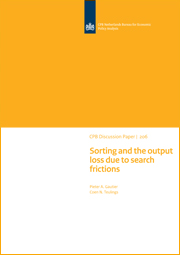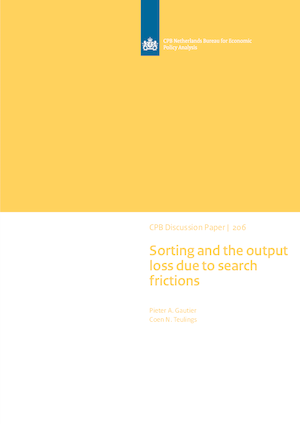March 6, 2012
Sorting and the output loss due to search frictions
The authors analyze a general search model with on-the-job search and sorting of heterogeneous workers into heterogeneous jobs.

This model yields a simple relationship between (i) the unemployment rate, (ii) the value of non-market time, and (iii) the max-mean wage differential. The latter measure of wage dispersion is more robust than measures based on the reservation wage, due to the long left tail of the wage distribution. We estimate this wage differential using data on match quality and allow for measurement error. The estimated wage dispersion and mismatch for the US is consistent with an unemployment rate of 5%. Finally, we find that without search frictions, output would be 6.6% higher.
Downloads
Pdf, 500.6 KB
Authors
Coen Teulings
Pieter Gautier
